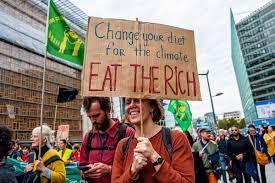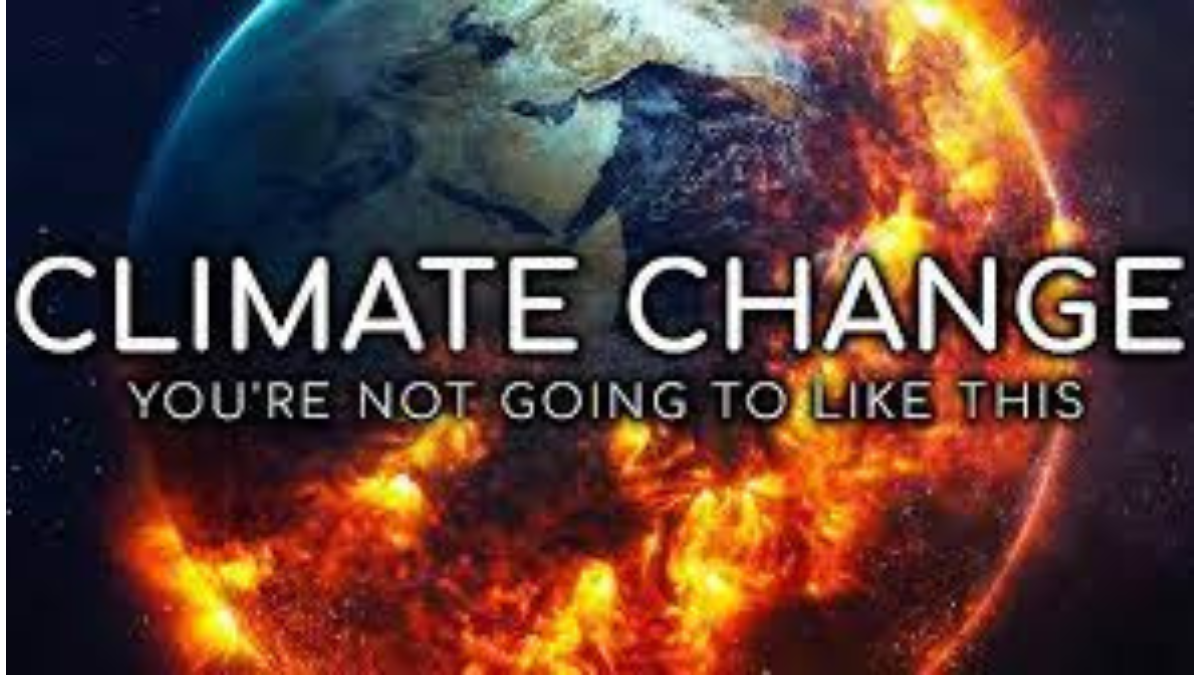The wealthiest individuals in America contribute significantly to global pollution, not only through the use of fossil fuels by the businesses they invest in but also through the size of their mansions and private aircraft.
Nearly half of the planet-heating pollution in the US is caused by the wealthiest 10% of Americans, who have urged governments to stop imposing “regressive” taxes on the carbon intensity of consumer goods and instead concentrate on taxing investments that contribute to climate change. It can seem impossible to control global warming, as it is such a vast, ambiguous, and overwhelming phenomenon. You understand that you’re doing your part, but it’s not very evident or measurable.
Carbon footprint for every dollar of economic activity in the United States, which the researchers associated with households by utilizing data from population surveys that revealed the sectors that individuals work in as well as their earnings from investments and wages.
They discovered that 40% of the country’s pollution that warms the planet is caused by humans and comes from the wealthiest 10% of US households, those earning more than roughly $178,000. Only the wealthiest 1% of households, those earning over $550,000, were associated with 15% to 17% of this pollution. They make up nearly all of the wealthiest 0.1% of Americans, are concentrated in sectors like mining, insurance, and finance, and emit about 3,000 tons of carbon pollution annually.
Table of Contents
How much do the wealthy owe to the poor due to climate change?
Discussions about climate reparations are held all over the world. Rich, high-emitting countries have long been accused of assisting low-income and developing countries with the financial burden of decarbonization.
The world community has only recently started to recognize that high-emitting nations are responsible for assisting other nations in coping with the harm caused by climate change, including rising sea levels, extreme weather, and other effects. During the U.N. climate talks in Egypt last year, world leaders decided to create a fund to compensate vulnerable nations for “loss and damage” brought on by climate change.

At least $192 trillion is owed by high-carbon countries to low-emitting countries as compensation for their greenhouse gas pollution. Climate justice demands that countries be compensated for this unfair burden if they are expected to quickly decarbonize their economies, despite having no accountability for the excess emissions causing the climate to become unstable.
Will this year’s COP28 be a success?

The term “parties” refers to the 197 countries that ratified the United Nations Framework Convention on Climate Change in 1992. COP stands for Conference of the Parties. Countries committed to addressing “dangerous human interference with the climate system” and stabilizing atmospheric levels of greenhouse gas emissions when they signed that agreement. Once a year, the U.N. climate body brings these governments together to discuss how to work together to combat climate change.
Nations decided to create a fund at the summit in Sharm el-Sheikh, Egypt, last year to assist poor and vulnerable nations cope with climate disasters exacerbated by greenhouse gases emitted into the atmosphere by industrialized nations. However, they could have made more headway in reducing those emissions. A plan to gradually phase out fossil fuels was thwarted by nations that produce and consume coal, oil, and gas. The host nation of Egypt also struck agreements to sell natural gas to Europe outside of the summit.
The fifth-largest oil producer in the world, the United Arab Emirates, is hosting the climate talks this year from November 30th, 2023, to December 12th, 2023. This has made many activists angry and complicated the negotiations. Cooperation between nations is made more challenging by the geopolitical unrest that surrounds the conference, which includes wars in the Middle East and Ukraine.



